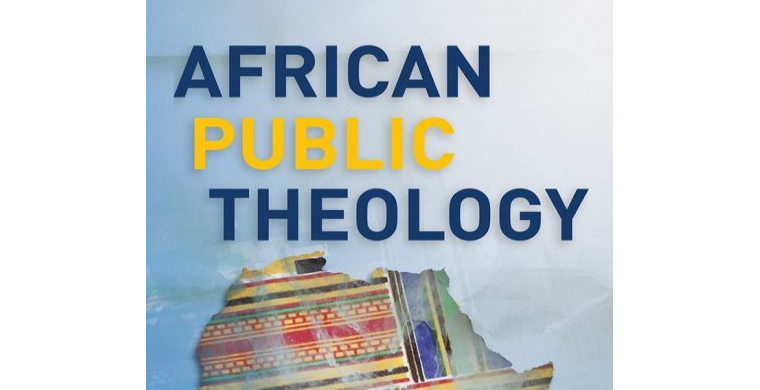A BIBILICAL APPROACH TO AFRICA'S POLITICS
By Godfrey Olukya
VOL African Correspondent
www.virtueonline.org
July 9, 2021
Since politics play a big role in Africa's development and religious issues, church leaders in Africa want to come up with a solution to handle it.
In order to do that, Church leaders from all over Africa intend to pursue a biblical approach to politics.
During a summit held from June 16th to 18th in Kenya's capital, Nairobi, titled "Church and Politics Summit 2021", clergy of various denominations, Christian business leaders, heads of theological schools, current and aspiring politicians, student leaders, and concerned citizens declared that they would create meaningful dialogue between the Christian community and the political marketplace to address challenges facing the continent.
Various religious leaders gave reasons why it is imperative to have biblical approach to politics in Africa. They said if done so, even the usual chaos during elections would be minimized.
Since Kenya is to hold elections next year, leaders in Kenya want the biblical approach in politics in the country to be intensified. The Rev. Dr. Canon Rosemary Mbogo, provincial secretary of the Anglican Church of Kenya, asked Christians in the country to prepare
for the country's 2022 general election.
The Rev. Dr Canon Rosemary Mbogo said, "We challenge Christians to be salt and light and be at the front line in providing solutions to our social-economic problems, rather than being spectators in public affairs. Moving forward, we will cascade conversations to the
grassroots and work together to effectively fulfill our commitments," she said.
The church, which played an important role in Kenya's democratization during and after the Cold War, has in recent years come under sharp scrutiny, especially after the disputed 2007 General Election, during which an estimated 1,300 people were killed and over 500,000 were displaced.
From 2003, key leaders in the church and wider civil society had adopted a posture of "constructive engagement" with retired President Mwai Kibaki, whom they had helped usher into power after decades of a single-party dictatorship.
"A church that is weak on the inside cannot be strong on the outside. God is calling us to action, but unless we deal with the software of our Christianity, we have no basis to do advocacy. God is asking us to act justly, to do right with other people and do right in every
situation," said the Rev. Canon Dr. Sammy Wainana, provost at Nairobi's All Saints Cathedral.
Dr. David Oginde, bishop emeritus of Christ Is the Answer Ministries, said the church's prophetic witness has been weakened by discordant voices, ethnic rivalries, money from special interests, and lack of wisdom.
"Politics in our context is more an art of manipulation leading to exploitation. Who will bring the voice of reason and stop the misuse of power, if not us the church?" he asked.
He added: "When the affairs of the nation are left unguided by the principles of the kingdom, then ordinary men and women shall inevitably suffer alienation: the powerful will oppress the weak, the rich will exploit the poor, and the majority will overshadow the
minority. It is for this reason that Christians must engage society and influence it for the good of all."
The Rev. Dr. Samuel Kobia, who heads Kenya's National Cohesion and Integration Commission, also rallied the church to hold the political elite to account.
"Politics is too important to be left in the hands of politicians. The church cannot keep quiet while the political class is mistreating the masses or when the masses are misbehaving. The best leaders listen to the biblical instructions on the fair administration of nations
through just rule," he said.
Kobia, a Methodist clergyman, who was the first African to be elected General Secretary of the World Council of Churches, is spearheading efforts to contain occasionally alarming levels of hate speech in the nation.
"Politics can be eventful, painful, and uncertain," said the Rev. Dr. Lazarus Chakwera, President of Malawi and a Pentecostal theologian. "But the conviction that God calls one into politics will keep them going. We are missionaries in the political arena where harvest is
bountiful, and the workers are few. Let us get out of our comfort zone and be found faithful."
A member of the advisory board at Christians for Social Action, Dr. Ron Sider, urged Christians across Africa to draw lessons from their counterparts in the United States in the wake of last November's heated general election.
"Our Declaration of Independence affirmed that everyone has been made in God's image. The church was, in the 19th century, at the forefront of ending slavery. At the start of the 20th century, the church supported trade unions and workers' rights. In the 1960s, the Rev. Dr.
Martin Luther King Jr. and other church leaders backed the civil rights movement. On May 27, 2003, President George W. Bush -- who is an evangelical -- signed legislation authorizing the President's Emergency Plan for AIDS Relief into law, in the process touching millions of
lives across Africa," he said.
Dr. Sider noted the church's quest for a biblically balanced agenda in the American public square had been hampered by the failure on the part of White Anglo-Saxon Protestants to recognize people of color as brethren in Christ, coupled with an unwillingness to listen to each
other and initiate conversations across the political divide.
"The church also allowed politicians, specifically former President Donald Trump, to stir up racism and an idolatrous nationalism. This was amplified by one-issue politics for evangelicals and Catholics, including on abortion. If you want your politics to be biblical,
you've got to find out what [else] God cares about," he said.
Sider urged African Christians to understand their world and interpret Scriptures faithfully.
END














